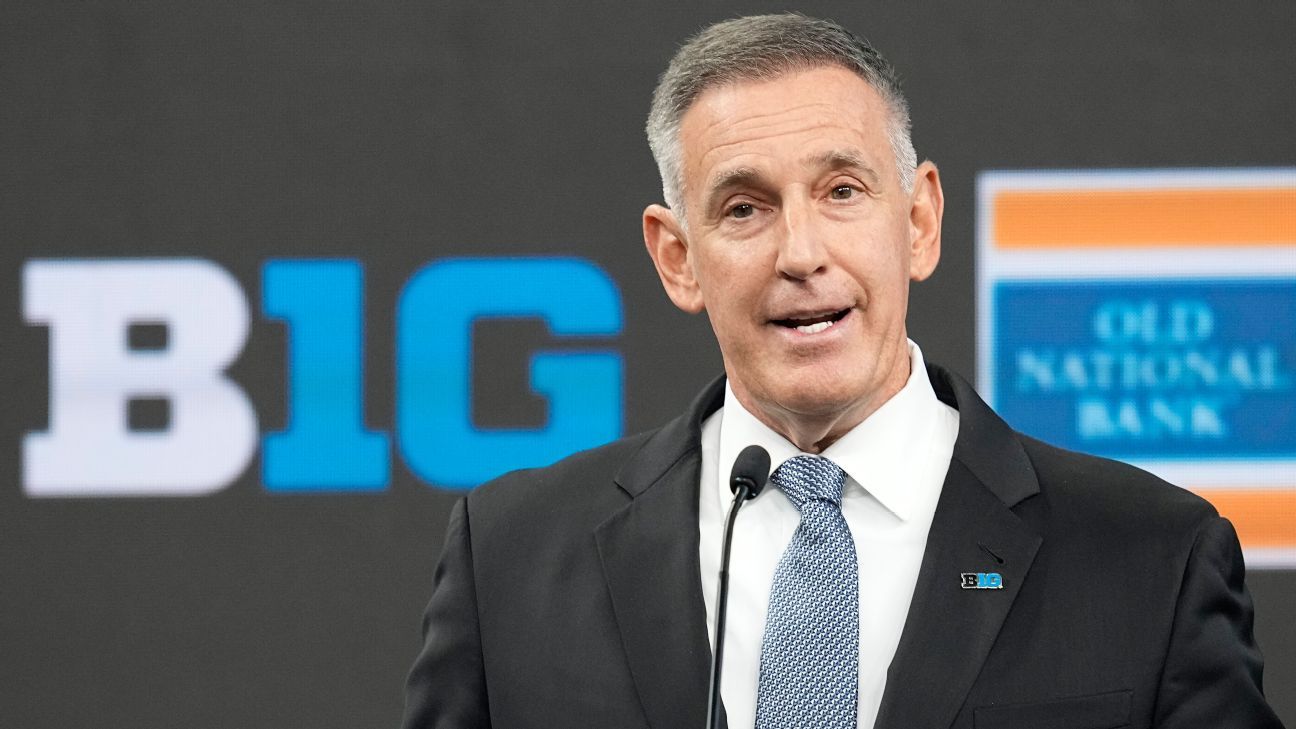
LAS VEGAS — Big Ten commissioner Tony Petitti is aware of criticism that his approach, including a proposed 16-team College Football Playoff model, is too much like those found in professional sports.
Petitti had a long stint with Major League Baseball after working as a sports television executive. His goal with the Big Ten is to weave successful elements from the pro ranks into a landscape that is distinct to college, but also changing with athlete compensation and other areas.
“I know people say this is not professional sports; this is college sports,” he told ESPN on Wednesday. “But there are things you can learn from leagues that are extremely successful, and how they keep teams alive, how they have really meaningful regular seasons. Like, that’s a valuable thing to study, because they do it really well.”
Petitti’s favored CFP model, which is heavy with automatic qualifying spots for the Big Ten and SEC, has parallels with those in the NFL and other pro leagues. The proposal has drawn criticism, including from Big 12 commissioner Brett Yormark, who earlier this month said, “We do not need a professional model, because we are not the NFL. We are college football, and we must act like it.”
Petitti agrees that college football operates differently and has observed how things work on campus during his first year as Big Ten commissioner. But he thinks some ideas launched at the pro level can enhance the college game, like keeping more teams involved in the playoff race later in the season.
“There’s all kinds of things you have to respect in the interactions with our ADs and our presidents and our coaches,” he said. “And are there still things that we can learn from what the professional leads do? Of course there are. But there are things that they do that we will never do. There probably are a lot of those things.”
One difference in operating within a pro league as opposed to several college conferences, Petitti said, is a need for collaboration. He remains in close contact with SEC commissioner Greg Sankey, who called him Wednesday following an interview, and is hopeful the two leagues that will determine the future CFP format can reach a compromise.
“The best path of deciding what will come next is to do the work together,” he said. “They might have some prep work they’re doing, we’re probably doing some. So you come back together, you share ideas, and maybe some of the lights get turned on during those meetings.”












